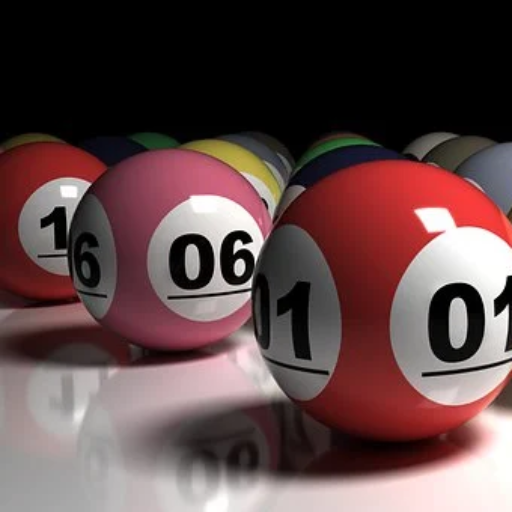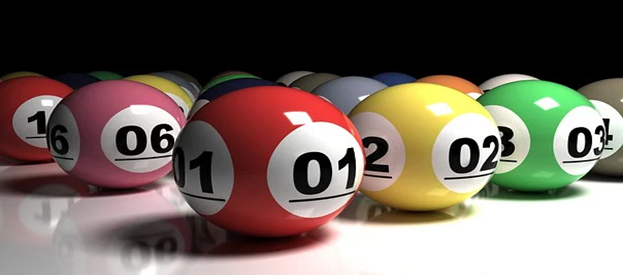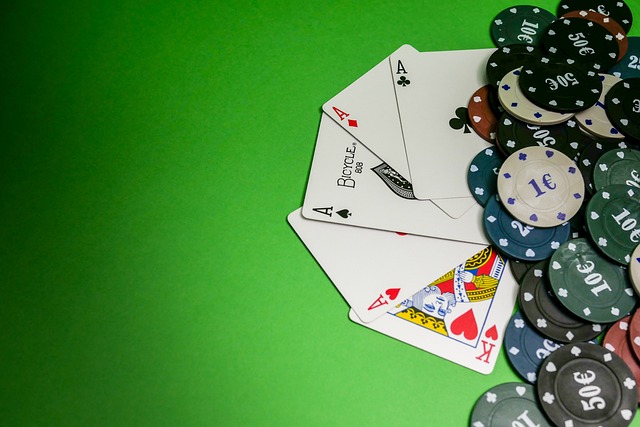1. Introduction to Poker: Understanding the Basics
Poker, a game of skill, strategy, and chance, has captivated the hearts and minds of players around the world for centuries. Whether you’re a complete novice or have dabbled in casual games with friends, this comprehensive beginner’s guide aims to equip you with the knowledge and tools necessary to dive into the thrilling world of poker. From learning essential poker terminology to exploring different variations, from understanding the rules and hand rankings to honing your betting strategies, this article will serve as your ultimate companion on your poker journey. So, let’s begin by unraveling the fundamentals of this intriguing card game.
1. Introduction to Poker: Understanding the Basics
1.1 What is Poker?
Poker is a thrilling card game that involves strategy, skill, and a bit of luck. Players bet on the strength of their hand, and the objective is to have the highest-ranking hand or convince other players to fold. While there are many variations of poker, the basic principles remain the same.
1.2 The Origins of Poker
The origins of poker can be traced back to the early 19th century in the United States. It is believed to have evolved from various card games that were popular in Europe and Persia. Since then, poker has become a global phenomenon, with countless variations and millions of players around the world.
1.3 Why is Poker so Popular?
Poker’s popularity can be attributed to several factors. Firstly, it offers a perfect blend of skill and luck, making it exciting and unpredictable. Additionally, poker has been glamorized in movies and TV shows, attracting a wider audience. The competitive nature of the game and the potential to win big prizes also adds to its appeal.
2. Essential Poker Terminology Every Beginner Should Know
2.1 Common Poker Terms
Before diving into the world of poker, it’s important to familiarize yourself with some common terms. These include “blinds” (forced bets before the cards are dealt), “raise” (increasing the bet), “fold” (to discard your hand), and “pot” (the total amount of money or chips in the center of the table).
2.2 Understanding Hand Rankings
Knowing the hand rankings is crucial to playing poker. From highest to lowest, the rankings are: royal flush, straight flush, four of a kind, full house, flush, straight, three of a kind, two pair, one pair, and high card. Understanding these rankings will help you determine the strength of your hand and make better decisions.
2.3 Poker Abbreviations and Acronyms
Poker players love their abbreviations and acronyms, so it’s helpful to know a few. For example, “BB” stands for big blind, “UTG” refers to the player who acts first (“under the gun”), and “BTN” stands for the dealer position (“button”). Learning these shortcuts will make it easier to follow along during poker games and discussions.
3. Getting Familiar with Different Poker Variations
3.1 Texas Hold’em
Texas Hold’em is the most popular poker variation, played in both casual and professional settings. Each player is dealt two private cards and attempts to make the best possible hand using those cards and the five community cards placed on the table. The game revolves around making strategic bets and bluffing opponents.
3.2 Omaha
Omaha is another exciting poker variation that shares similarities with Texas Hold’em. However, in Omaha, players receive four private cards and must use two of them, combined with three community cards, to make their hand. The increased number of starting cards adds an extra layer of complexity and strategy to the game.
3.3 Seven-Card Stud
Seven-Card Stud is a classic poker variation that was popular before Texas Hold’em took over the spotlight. In this game, players are dealt a combination of face-up and face-down cards, and the goal is to create the best five-card hand. The strategic aspect of Seven-Card Stud lies in reading the visible cards and predicting your opponents’ hands.
4. Step-by-Step Guide to Setting Up a Poker Game
4.1 Choosing the Right Poker Set and Equipment
To set up a poker game, you’ll need a quality poker set that includes chips, cards, and a dealer button. You can find these sets at various price points, so choose one that fits your budget and preferences. It’s also a good idea to have a comfortable table and enough seating for all players.
4.2 Setting the Table and Distributing Chips
Once you have the necessary equipment, set up the poker table with enough space for players to place their cards and chips. Distribute the chips evenly among the players, ensuring that each player has a sufficient starting stack. Establish the value of each chip to determine the betting limits for the game.
4.3 Dealing the Cards and Establishing the Dealer
To start the game, assign a dealer position using the dealer button. The dealer distributes the cards clockwise, starting with the player to their left. The number of cards and the specific dealing rules depend on the chosen poker variation. Make sure everyone understands the rules and any specific house rules before beginning the game.
With these tips in mind, you’re well on your way to becoming a poker pro. Remember to practice, have fun, and always play responsibly. Good luck at the tables!5. Mastering the Fundamentals: Rules and Hand Rankings
5.1 Understanding the Poker Hands and Rankings
Let’s face it, in the world of poker, hand rankings are like the holy grail. They determine who takes home the pot and who’s left crying in their cards. So, it’s important to familiarize yourself with the different hands and their rankings. From the lowly high card to the mighty royal flush, each hand holds a specific value. Take some time to study and memorize these rankings, because they will be your ticket to success at the poker table.
5.2 The Importance of Betting and Pot Odds
Ah, betting and pot odds, the dynamic duo of poker. Betting is essential to the game, as it allows you to not only win chips but also manipulate your opponents into making certain moves. Understanding pot odds, on the other hand, is like having X-ray vision into the game. It helps you make informed decisions about whether a bet is worth making based on the potential reward compared to the risk. So, don’t be shy when it comes to betting, and always keep an eye on those pot odds.
5.3 Basic Poker Etiquette at the Table
Picture this: you’re sitting at a poker table, cards in hand, ready to take on the world. But wait, there’s more to poker than just the cards. Basic poker etiquette is like the secret handshake that lets you blend in seamlessly. Avoid talking out of turn, don’t take forever to make a decision, and please, for the love of all things poker, keep your emotions in check. Nobody wants to play with a sore loser or a gloating winner. So, remember to bring your best manners to the table.
6. Tips and Strategies for Making Smart Bets and Decisions
6.1 Starting Hand Selection and Positioning
When it comes to poker, your starting hand can make or break your game. So, it’s crucial to know which hands are worth playing and which ones are better off folding. Additionally, your position at the table can have a huge impact on your decision-making. Being in a late position gives you more information about your opponents’ actions, while being in an early position requires a bit more caution. So, choose your starting hands wisely and always consider your position.
6.2 Understanding Bet Sizing and Pot Control
Betting is like a delicate dance in the world of poker. You need to find that perfect balance between making enough of a bet to build the pot while also not scaring your opponents away. This is where bet sizing comes into play. By strategically adjusting your bet sizes, you can control the pot and keep your opponents guessing. Remember, it’s not always about going all-in; sometimes, a small bet can be just as effective.
6.3 Reading Opponents and Recognizing Tells
Poker is not just a game of cards; it’s a game of people. Reading your opponents and recognizing their tells can give you a significant advantage. Is someone nervously tapping their fingers when they have a great hand? Or maybe they’re avoiding eye contact when they’re bluffing? Pay attention to these subtle cues and use them to your advantage. Just be careful not to let your own tells give you away!
7. Building Your Poker Skills: Practice and Study Techniques
7.1 Joining Poker Communities and Forums
Why learn alone when you can be part of a vibrant poker community? Joining poker communities and forums can provide you with a wealth of knowledge, as well as an opportunity to discuss strategies and learn from more experienced players. So, don’t be afraid to jump in and engage with fellow poker enthusiasts.
7.2 Utilizing Online Poker Training Sites
If you’re serious about improving your poker skills, online poker training sites are a goldmine of resources. These sites offer tutorials, videos, and even one-on-one coaching to help you refine your game. Whether you’re a beginner or an experienced player, taking advantage of these resources can take your poker skills to the next level.
7.3 Analyzing Hand Histories and Reviewing Gameplay
The beauty of poker is that every hand is a learning opportunity. By analyzing hand histories and reviewing your gameplay, you can identify patterns, strengths, and weaknesses in your strategies. This self-reflection allows you to make adjustments and continually improve your game. Remember, even the most seasoned players are always striving to get better.
8. Common Mistakes to Avoid as a Poker Beginner
8.1 Playing Too Many Hands
In the excitement of the poker world, it’s easy to get caught up in the action and play every hand that comes your way. But here’s a little secret: playing fewer hands can actually increase your chances of winning. Focus on quality over quantity. Be patient, wait for those strong starting hands, and save your chips for the moments that truly matter.
8.2 Overestimating the Value of Your Hand
We’ve all been there – holding a pair of twos and convincing ourselves that it’s a winning hand. Don’t fall into the trap of overestimating your hand’s value. Take a step back, evaluate the board, and objectively assess your chances of winning. Sometimes, it’s wiser to fold and fight another day than to throw away your chips on a weak hand.
With these tips and strategies, you’re well on your way to becoming a poker pro. So, grab your chips, take a deep breath, and get ready to conquer the poker tables with your newfound knowledge and charm. Good luck!In conclusion, poker is a game that offers endless excitement, challenges, and opportunities for growth. By understanding the basics, familiarizing yourself with the terminology, and practicing various strategies, you can develop your skills and become a formidable player. Remember, poker is not just about luck, but also about making calculated decisions and reading your opponents. So, take what you’ve learned from this beginner’s guide and start your poker adventure with confidence. Embrace the ups and downs, enjoy the camaraderie at the table, and may the cards be in your favor. Good luck and may your poker journey be filled with thrilling moments and rewarding victories!
FAQ
1. Is poker purely a game of luck?
No, poker is not solely a game of luck. While luck plays a role in the short term, skilled players can consistently outperform less experienced opponents over the long run. Understanding the rules, employing effective strategies, reading opponents, and making informed decisions based on probabilities all contribute to success in poker.
2. Do I need to memorize all the hand rankings to play poker?
While it’s essential to have a basic understanding of hand rankings, you don’t need to memorize them all at once. With practice and gameplay, you’ll gradually familiarize yourself with the different hands and their respective rankings. It’s recommended to keep a cheat sheet handy until you become more comfortable with the rankings.
3. How can I improve my poker skills?
Improving your poker skills requires a combination of practice and study. Engaging in regular gameplay, analyzing your hands, and learning from your mistakes are crucial. Additionally, reading books, participating in poker forums, watching instructional videos, and seeking guidance from experienced players can greatly enhance your understanding and gameplay.
4. Can I play poker online?
Absolutely! Online poker platforms provide a convenient and accessible way to play poker from the comfort of your own home. Many reputable websites offer a wide range of poker variations and tournaments for players of all skill levels. However, it’s important to choose a licensed and secure platform to ensure fair play and protect your personal information.








Facebook Comments